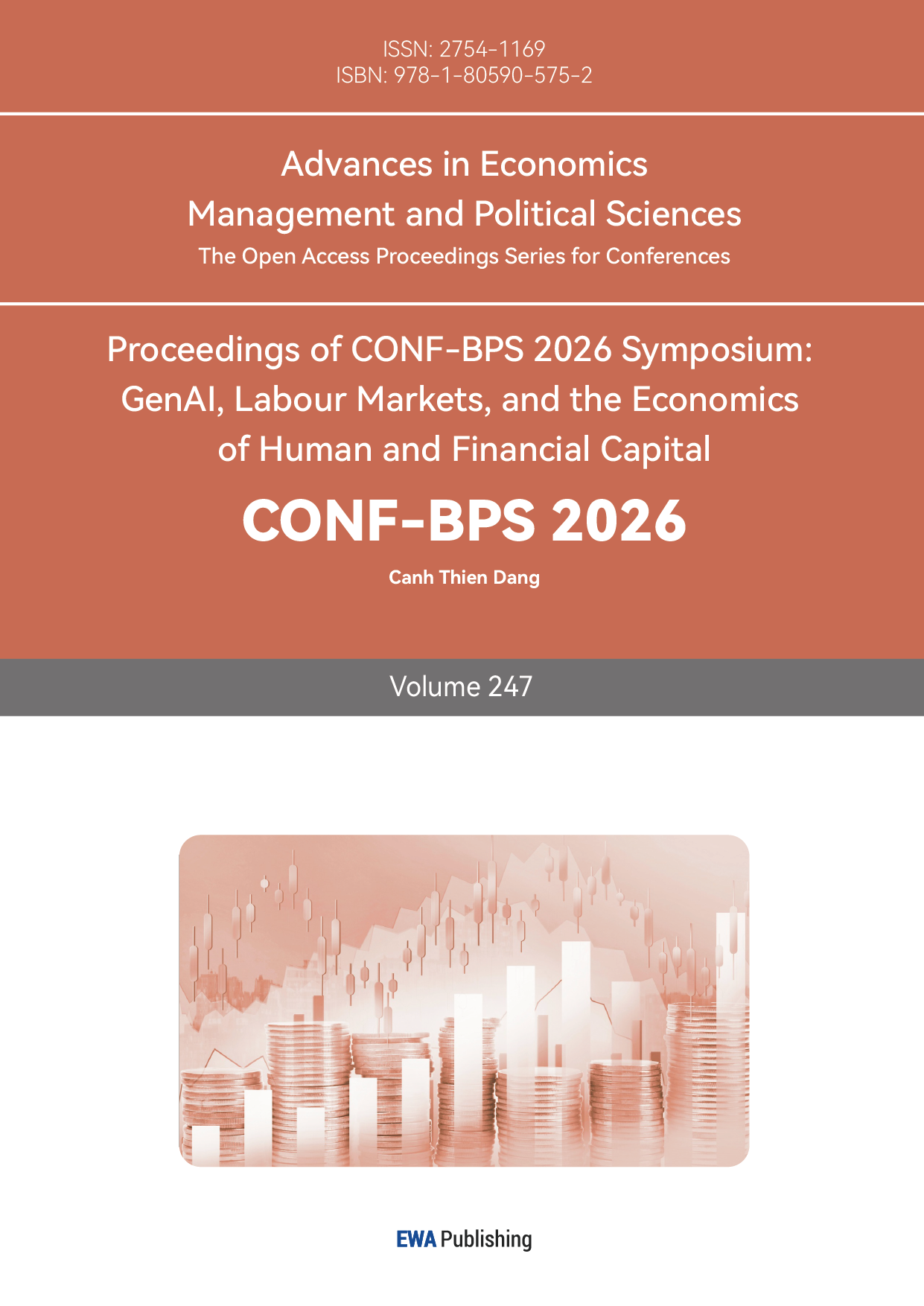References
[1]. International Energy Agency. (2025) Global EV Outlook 2025. https: //www.iea.org/reports/global-ev-outlook-2025/trends-in-electric-car-markets-2.
[2]. Irfan, D. and Tang, X. (2025) Evaluating China’s Electric Vehicle Adoption with PESTLE: Stakeholder Perspectives on Sustainability and Adoption Barriers. Sustainability, 17(14), 6258.
[3]. Soltani-Sobh, A., Heaslip, K., Stevanovic, A., Bosworth, R. and Radivojevic, D. (2017) Analysis of the Electric Vehicles Adoption over the United States. Transportation Research Procedia, 22, 203-212.
[4]. Ling, Z., Cherry, C.R. and Wen, Y. (2021) Determining the Factors That Influence Electric Vehicle Adoption: A Stated Preference Survey Study in Beijing, China. Sustainability, 13(21), 11719.
[5]. Coffman, M., Bernstein, P. and Wee, S. (2017) Electric vehicles revisited: a review of factors that affect adoption. Transport Reviews, 37(1), 79-93.
[6]. Liu, H.C., You, X.Y., Xue, Y.X. and Luan, X. (2017) Exploring critical factors influencing the diffusion of electric vehicles in China: A multi-stakeholder perspective. Research in Transportation Economics, 66, 46-58.
[7]. Liu, D. and Xiao, B. (2018) Exploring the development of electric vehicles under policy incentives: A scenario-based system dynamics model. Energy Policy, 120, 8-23.
[8]. Helveston, J.P., Liu, Y., Feit, E. M., Fuchs, E., Klampfl, E. and Michalek, J.J. (2015) Will subsidies drive electric vehicle adoption? Measuring consumer preferences in the U.S. and China. Transportation Research Part A: Policy and Practice, 73, 96-112.
[9]. Wang, D., Ozden, M. and Tsang, Y.P. (2023) The impact of facilitating conditions on electric vehicle adoption intention in China: An integrated unified theory of acceptance and use of technology model. International Journal of Engineering Business Management, 15.
[10]. Sierzchula, W., Bakker, S., Maat, K. and Van Wee, B. (2014) The influence of financial incentives and other socio-economic factors on electric vehicle adoption. Energy Policy, 68, 183-194.
[11]. Winikoff, J.B. (2024) Economic specialization, infrastructure, and rural electric vehicle adoption. Energy Policy, 195, 114380.
[12]. Ma, H., He, B.Y., Kaljevic, T. and Ma, J. (2024) A Two-sided Model for EV Market Dynamics and Policy Implications. Working paper.
[13]. Asensio, O.I., Buckberg, E., Cole, C., Heeney, L., Knittel, C.R. and Stock, J.H. (2024) Charging Uncertainty: Real-Time Charging Data and Electric Vehicle Adoption. Working paper.
[14]. Yuan, H., Ma, M., Zhou, N., Deng, Y., Liu, J. and Zhang, S. (2024) Planning for future EV charging infrastructure: A city-scale assessment. Working paper.



